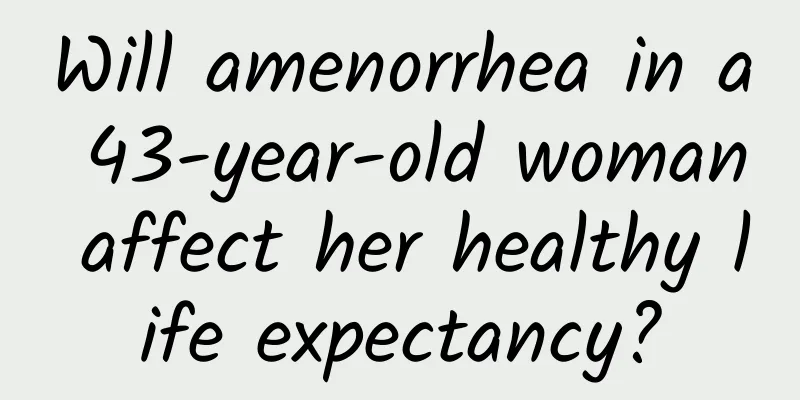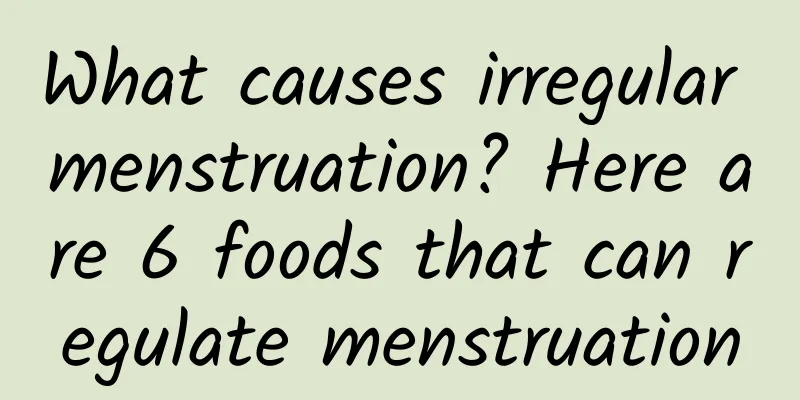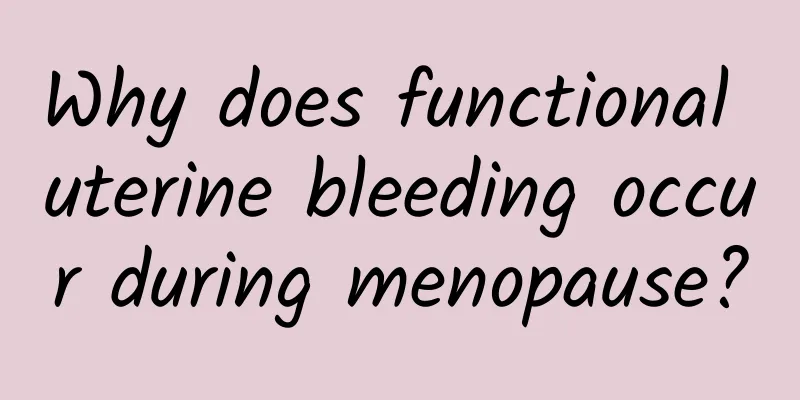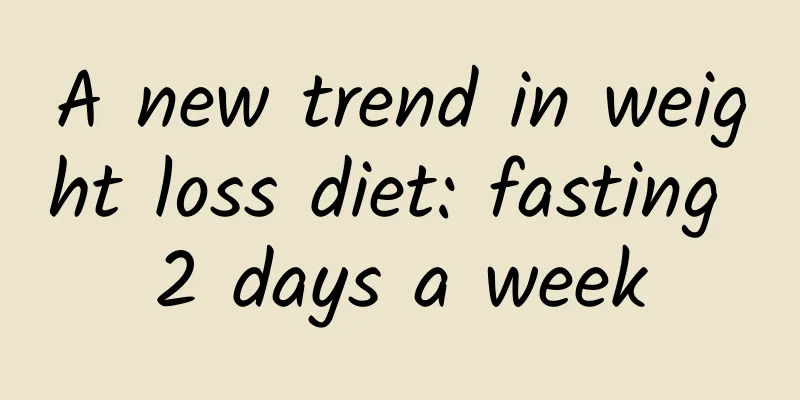Will amenorrhea in a 43-year-old woman affect her healthy life expectancy?

|
Will amenorrhea affect the healthy life expectancy of a 43-year-old woman? Amenorrhea is just a symptom of gynecological disease. Many patients do not understand the harm of amenorrhea and are also concerned about whether amenorrhea will affect life expectancy. So will amenorrhea affect life expectancy? Let's see how experts explain it. Classification Natural menopause It refers to the failure of ovarian follicles, or the loss of gonadotropin response of the remaining follicles, the development and secretion of estrogen by the follicles, and the inability to stimulate the growth of the endometrium, leading to menopause. Artificial menopause Ovariectomy is surgery to remove the ovaries or otherwise stop the ovaries from functioning. Clinical manifestations Menopause means the decline of ovarian function, the depletion of estrogen, the cessation of menstruation, and the termination of reproductive function. It is generally divided into three stages: premenopause, menopause, and postmenopause. Menopause is the last menstrual cycle for women, and most women enter menopause naturally between the ages of 45 and 55. Sudden and obvious estrogen deficiency can cause some discomfort after menopause, which may occur in premenopausal people. It often manifests changes in mood and emotions, irritability, excitement, insomnia, anxiety, anxiety, depression, palpitations, flushing, hot flashes, sweating, dry skin, itching, sometimes with a feeling of ants crawling, skin and skin loss of elasticity, wrinkles, muscle relaxation, pain, fatigue or fatigue, headache, dizziness, and unstable blood pressure. These symptoms are called menopausal syndrome. Recent symptoms Menstrual disorders Vasomotor symptoms Symptoms of autonomic dysfunction Symptoms of psychoneurosis Long-term symptoms Urogenital symptoms Osteoporosis Alzheimer's disease Cardiovascular disease If the ovaries are not well cared for during this period to ensure that the follicles in the ovaries absorb sufficient nutrients, the follicles will not mature and ovulate, and the secretion of female estrogen and progesterone will drop to the lowest level. Women will experience menstrual disorders or even amenorrhea before the age of 45, accompanied by a series of menopausal syndromes. Once a person stops menstruating, the secretion of female hormones will drop sharply, and the ovarian function will decline rapidly. Many symptoms will follow. Women will experience palpitations, chest tightness, anxiety, depression, irritability, insomnia, and memory loss. Women's appearance is mainly maintained by female hormones. The skin loses its luster and wrinkles appear in large numbers. The vaginal mucosa will become thinner and more vulnerable to external damage; the mind will become unfocused; back pain will often be felt; the digestive system's absorption of nutrients will be weakened, and osteoporosis and joint pain will follow. From the above content, we can see that amenorrhea generally causes greater harm to women, but the appearance of these symptoms will not directly cause death and generally will not seriously affect life expectancy. |
>>: Will cold drinks affect menstruation? How should girls eat cold drinks correctly in summer?
Recommend
How can women prevent endometrial tuberculosis?
The cause of endometrial tuberculosis is relative...
What are the items in menopause examination?
I believe that more and more people understand th...
There is a way to slim down your legs! 4 acupoints to remove thigh fat
I have been strictly controlling my diet, but my ...
Are you doing the right thing to lose weight? 5 misconceptions that you must know!
The Internet is full of information, but it is fu...
No holiday for thin thighs! 4 ways to take a break from your busy schedule
Thighs are the part that many women want to be th...
Multiple sexual partners caused her to suffer from pelvic inflammatory disease
Lily is a beautiful girl, but she doesn't lik...
What are the symptoms of uterine fibroids?
Symptoms of uterine fibroids may include menstrua...
Is an ovarian cyst an ectopic pregnancy?
Is an ovarian cyst an ectopic pregnancy? 1. Ovari...
The harm of pelvic inflammatory disease can cause female infertility!
Experts say that since pelvic inflammatory diseas...
Daily health care for dysmenorrhea cannot be ignored!
Daily care for dysmenorrhea cannot be ignored! Th...
What are the surgical treatments for uterine fibroids? What are the preventive measures for uterine fibroids?
What is the basic common sense of surgical treatm...
Egg white can cure cervical erosion
After suffering from cervical erosion, in additio...
How to regulate irregular menstruation? Chinese medicine is effective
What medicine can be taken to regulate irregular ...
Why is the menstrual flow so heavy after a miscarriage? Doctors suggest that you should pay attention to 3 things after a miscarriage
Abnormal vaginal bleeding may occur after surgica...
What are the symptoms of acute cervical warts
The incidence of cervical warts is very high nowa...









